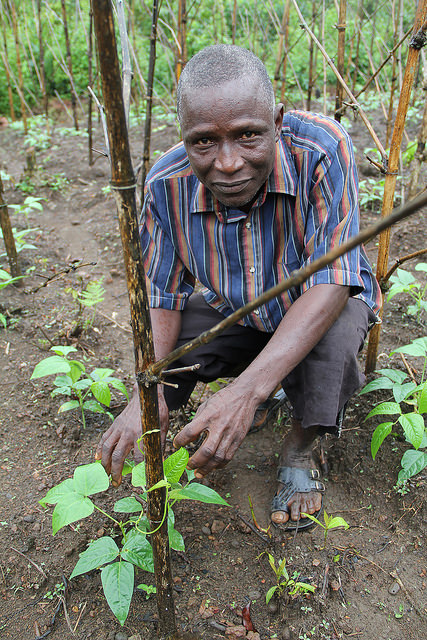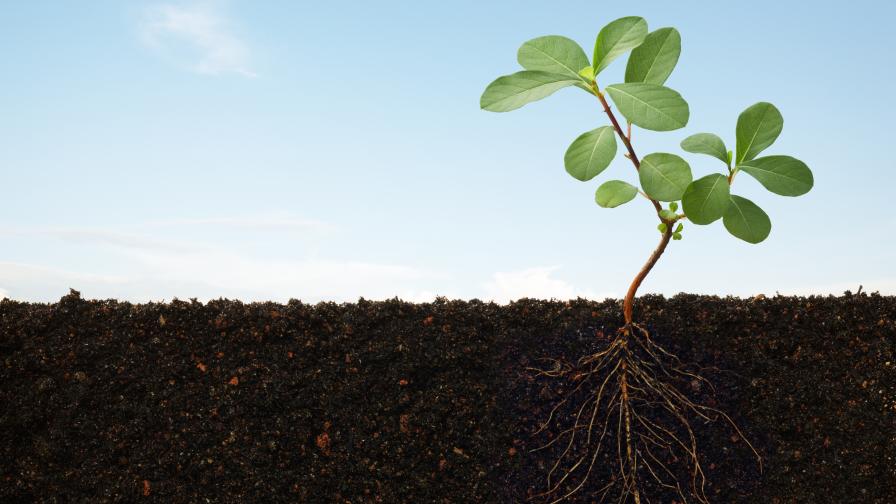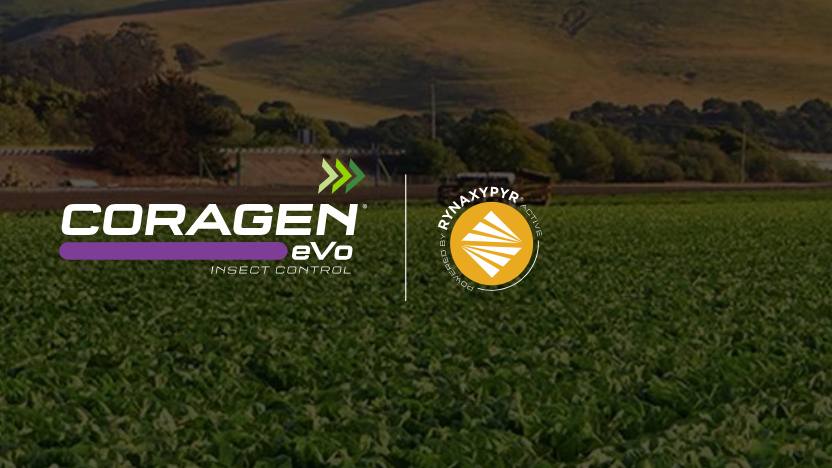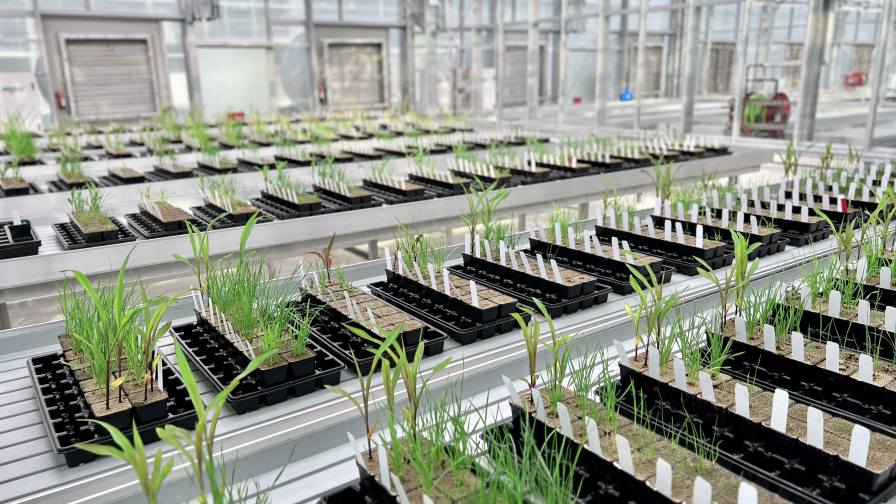How Africa’s Farms Are Recovering from Ebola

A Liberian farmer tending improved-variety bean production. With the onset of Ebola, people have been discouraged from gathering in public places and are fearful of group work, making
production and marketing challenging. Photo courtesy ACDI/VOCA
Before last year, the claim to fame of the Kailahun district in Eastern Sierra Leone was two of its sons, Ahmad Tejan Kabbah, the country’s third president, and Iansana Sheriff, an internationally acclaimed musician popularly known as Steady Bongo.
Then Ebola hit.
Instantly, the otherwise quiet community of mixed farmers was transformed into a case study of what the lethal epidemic can do to a country. The World Bank described Kailahun as “an epicenter of the epidemic and the country’s most fertile, food-producing area.”
At the height of the crisis towards the end of 2014, the disease had ravaged the district, killing many of the country’s most productive farmers and sending many more fleeing for fear of infection.
Many non-governmental organizations working to help more than 410,000 people in the country improve their rice, coffee and cocoa farming systems suspended operations, as personal interactions were shunned and families began fleeing their farms out of fear of becoming infected with the virus.
“Every recorded death in the community leads to migration of many households as a result of stigma or fear that they might catch the virus,” Kailahun District Crops Officer Augustine Kamara told a public sensitization meeting organized by international donors and health agencies in January.
Henry Yamba Kamara, managing director of the state-owned producer and buyer Sierra Leone Produce Marketing Company, told Bloomberg news agency that the sector was in a crisis after farmers began fleeing their homes. “Buyers have refused to go in,” he said. The outcome will be either the cocoa will rot or nobody will be there to buy, which will lead to a drop in exports, Kamara told the news agency.
The majority of farmers in Kailahun and other cocoa-producing districts in Sierra Leone rely on buyers, who advance them money to prepare their farms for the harvest season.
“It is usually through the financing from the business partners that farmers buy food and hire people to do underbrushing of the cocoa plantation before harvesting. But now we have seen no sign of that so far,” said Alpha Ndoleh, Kailahun Town chief, during the sensitization forum.
Crops in Ebola-ravaged districts such as Kailahun were either harvested too soon, or in some instances, farmers and their families ate the planting seed for lack of food, exacerbating the already bad food security situation.
“Many people are not going looking for farm work. We do not even have enough food to enable us to continue working; neither can we finish the farm work because we are forced at times to eat the seeds meant for planting,” said Ismail Foday, one of the large rice producers in Kailahun. In good times he could employ as many as 40 people to work in his farm every day.
Kailahun, which borders Guinea to the north and Liberia to the east, is one of the many regions in Sierra Leone where a combined population of 120,000 are food insecure. The World Bank estimates this population will rise to 280,000 by the end of March 2015.
Liberia and Guinea
Similar scenarios have been replayed in Liberia and Guinea, which reported the hemorrhagic fever incidents in December 2013. Sierra Leone followed shortly after leaving in its wake more than 9,500 people dead and 23,500 cases of the disease in West Africa.
Farming in Liberia and Guinea, too, has been disrupted with a number of NGOs that had initially suspended operations after communities either fled or quarantine measures were imposed have come back with strategies on how to revive the once vibrant economic sector.
One of the worst-hit segments in West Africa is the grassroots organizations such as cooperative societies and loan clubs launched mainly by women. Many of the programs have collapsed after some the members died before repaying their loans, while those remaining are unable to repay because investments vanished after they abandoned their crop and livestock enterprises. Some say they were forced to divert whatever savings they had to combating effects of the epidemic.
Food and Agriculture Organization of the United Nations, for example, is working to resuscitate grassroots cooperative societies and loan schemes in Liberia, many of them initiated by women’s groups before the Ebola crisis.
Four months ago, during a visit to one of the organizations in Liberia by the agency’s officials, a member of the Togetherness Rural Women Farmers Organization captured the desperation of the members when she said of one of her colleagues: “She lost her husband and two children who died from Ebola. She was infected but survived. Now she is alone, and has nothing to do. Another member, borrowed L$9,000 ($110), reimbursed L$5,000 and died without paying the balance.”
“Some members took L$20,000 and L$10,000. Ebola spoiled their businesses mainly because of the disruption of market in August. They got sick or their family got sick and they died without paying a cent. Our savings club had a total of L$150,000 ($1,800). Now we have zero,” she confessed.
Recovery Efforts
FAO has been involved in “an in-depth assessment” of the outbreak’s impact on the savings and loans scheme of the organization with a pledge to ensure that if the depletion of their finances is confirmed, it will seek partnerships to develop cash transfer activities to support women’s associations and contribute to agriculture production.
Similar schemes have been launched in the three countries where an unprecedented number of communities have, within months of the outbreak, been transformed into vulnerable populations in dire need of food and revitalization of farm activities.
For example, ACDI/VOCA, a private non-profit organization known for the promotion of broad-based economic growth and higher living standards in low-income countries and emerging democracies, worked closely with USAID to “rapidly restructure” the projects it implements for organization in Liberia and Sierra Leone to “focus first on the emergency situation and now on recovery.”
In addition to its Ebola-prevention approaches such as focusing on improved agricultural production and nutrition, ACDI/VOCA says it plans to provide vouchers to small farmers to obtain agricultural inputs from local dealers, “so they can revive production while stimulating local agro-dealer enterprises.”
A similar approach is being considered for food vouchers, which can be redeemed from local sellers in order to meet family nutritional needs while in jecting cash into the local economy, said Mazen Fawzy, ACDI/VOCA managing director for Resilience & Stabilization.
“Both voucher programs are intended to revive and strengthen local supply chains (inputs and food) that were disrupted by the (Ebola) crisis while stimulating production and meeting critical household nutritional needs,” he said.
Solutions to Market Disruptions
The World Bank and FAO say rice production in Guinea fell by one-fifth, corn by a quarter and coffee by 50%. In Liberia, the harvest season was hit by an acute labor shortage with 65% of people expressing fear of lower harvests in 2015 compared to 2014, World Bank says.
Although Liberia, Guinea and Sierra Leone’s cocoa production represent just 0.7% of the global share, the International Cocoa Organization (ICCO) said the harvesting and shipping of cocoa in Guinea, Liberia and Sierra Leone have been “seriously curtailed.”
West Africa supplies about 70% of the world’s cocoa and Côte d’Ivoire, which shares its western border with Liberia and Guinea, contributes almost 40%, according to ICCO.
The fall in agricultural production is attributed to many factors triggered by the complex nature of Ebola’s disruption of society, according to Fawzy.
“These include disruptions in market chains both for production and input supplies, restrictions on movement of goods including food, decreased sales from a lack of cash in the communities, and in some cases, reduction in group work such as farming due to fear of infection or government restrictions in the case of Sierra Leone of group gatherings or activities,” he said.
Fawzy added that a new ag input voucher approach ACDI/VOCA will take on will ensure that cash is injected into local economies that have been heavily affected by Ebola.
“This, coupled with the technical production and health/nutrition training, along with local capacity development in disaster risk reduction, will help the communities we partner with in their own recovery. As an organization, ACDI/VOCA’s approach integrates agribusiness as part of the recovery process.”
In early February, the World Bank announced it mobilized $15 million in grants to purchase fertilizer. The fertilizer will help farmers “meet tight planting season deadlines and help lay the foundations for sustained recovery.”
World Bank Vice President for Africa Makhtar Diop said, “By speeding supplies of urgently needed seeds of major food crops to communities in West Africa, we are jumpstarting recovery in rural areas and preventing the looming specter of hunger in the countries hardest hit by Ebola.”
“Agriculture is a risky enterprise and timely availability of critical inputs such as seed, fertilizer, irrigation and extension services are vital for securing a good harvest,” Juergen Voegele, the bank’s senior director for agricultural global practice added.
In addition to building capacity of local agencies to support their members, international and national campaigns are targeting the provision of improved seeds, fertilizer and farming equipment alongside efforts to sensitize communities on how to avoid Ebola transmission.





